[ad_1]
This story previously aired on Sept. 30, 2023.
Josh Jones and Laura Keck have prosecuted hundreds of cases, but no case has troubled them quite like the murder of Becky Bliefnick.
Josh Jones: You put yourself in the mind of Becky Bliefnick in the last moments of her life, the fear that she had to be feeling … You can’t walk out of that house and not be affected by it.
Becky was just 41 years old when, on the afternoon of Feb. 23, 2023, her own father discovered her lifeless on the bathroom floor of her Quincy, Illinois, home. She had been dead for hours — shot a total of 14 times. None of the wounds were immediately fatal.
Josh Jones: It took her minutes to die. … It was an emotional response for both of us to realize not just that she had been executed … but that her last minutes were lying on a floor alone, in the dark, in extreme pain, waiting to die.
ILLINOIS MOM GUNNED DOWN IN HER HOME
Quincy is a quiet town along the Mississippi River where violent crimes are rare and unsettling.
Laura Keck: She was a nurse … who had three children. … I think people were just horrified that a mother of three young boys could be shot and killed in her own home.
Sarah Reilly is Becky’s older sister and her only sibling. She lives in New York, but was away on vacation with her husband, Bret Reilly, when they got that life-changing call.
Sarah Reilly: You just wanna wake up and have it not be real.
Bret Reilly: It’s a living nightmare. … How fast can we get to the airport, fly back to New York, unpack our swimsuits and pack funeral clothes, and get out to Quincy, Illinois, and just holding each other up in screaming grief.
Erin Moriarty: How would you both describe her?
Bret Reilly: Selfless.
Sarah Reilly: That really captures it. … She thought of everybody that was in her life as somebody important and somebody special. … The kids were her world.
Laura Keane Photography
Becky’s three sons – ages 12, 10 and 5 – were not at home at the time of the murder. They were staying with their father, Tim Bliefnick, about a mile away. The couple was in the process of getting divorced. Tim says that when he couldn’t reach Becky on the 23rd, he contacted her father.
Tim says that when he couldn’t reach Becky on the 23rd, he contacted her father.
Tim Bliefnick: He said, ‘Hey, I haven’t been able to get a hold of her either. I’m gonna go over to the house.” … What happened to Becky should have never happened. And it just— it still doesn’t—at times, it still just doesn’t feel real.
Police quickly determined that the killer had broken into Becky’s home by prying open an upstairs window in one of the children’s bedrooms. Video shows a police officer later reenacting how investigators believe the assailant scaled the house.
Josh Jones: The person had climbed up on there … there was a patio chair that was pulled over … They walked past Becky’s windows in her bedroom … And then they went to a room of one of the boys … and they pried open, broke the window open, uh, went in. … You could almost trace their path … to Becky’s room. They had kicked in or broken in the door violently. … Becky then ran into the bathroom turned around and … got shot.
Erin Moriarty: What time do you believe the intruder entered the house?
Josh Jones: So, it would’ve been around 1:11 in the morning, because we know that at 1:11 and 10 seconds, Becky tried to call 911 on her cell phone. She dialed 9-1-1-2-6. And the phone was knocked out of her hand, and it was found behind the door.
Nothing appeared to be stolen, and neighbors didn’t see or hear anything. But there was evidence left behind: a partial shoe print near the point of entry, eight spent 9-millimeter shell casings, and small pieces of plastic on the floor around Becky’s body.
Josh Jones: We thought it was unusual when we saw that. It was like, “OK, what is this?”
Detectives canvassing the neighborhood looking for surveillance video didn’t have to go far. Becky’s next door neighbors, the Heimanns, had installed a camera on the side of their house after a car break-in more than a year earlier. It pointed at their driveway, which ran alongside Becky’s house.
Erin Moriarty: What does it record?
Taylor Heimann: It records movement. So anytime it senses movement, it will notify us on our phones.
Adams County State’s Attorney’s Office
The Heimanns’ camera didn’t capture anything on the night of the murder, but it did capture something unusual about 24 hours earlier. We have slowed down some of the videos so you can see them better. At 1:05 a.m., a person was seen walking down the driveway towards the back of Becky’s house. And what appeared to be that same person was seen again 48 minutes later — this time, walking in the opposite direction. The camera had also captured a similar incident — about a week earlier – on February 14, Valentine’s Day.
Taylor Heimann: I saw that one in the middle of the night. … And texted Becky immediately. I told her …we just saw somebody in the driveway. And she responded not till the next morning—
Erin Moriarty: And what did she say when she responded?
Taylor Heimann: That’s when she told me that she hadn’t seen anything. But she thought she had been hearing voices in her backyard and her motion light go on. And she was very paranoid.
At the time, the Heimanns thought it was a neighborhood prowler looking for something to steal. But now, with Becky dead, they began to wonder. And investigators did, too.
Josh Jones: Officers went around the entire neighborhood trying to find more video. … And we were able to find a video from a house … and we were able to find video from the Quincy bus barn. … And those videos showed a person … riding a bike in the direction of Becky’s house.
After analyzing the recorded times of the videos, authorities began to suspect that the person seen on the bike was the same person seen in the driveway.
Josh Jones: Every time you see a person at the Heimann residence, you see a person riding a bike down the road, just a few minutes before you see a person on that Heimann video.
And even though there was no video from the Heimann residence on the morning Becky was killed, there was video of a person on a bike riding in the direction of Becky’s house right before the murder, and in the opposite direction right after.
Laura Keck: And this is not a part of town that people ride bikes in the middle of the night in winter. … And, so, when you have this surveillance video … and it exactly matches the timeline … that’s suspicious.
But there was one big problem: you can tell absolutely nothing from the videos — only that the bike did not appear to have reflectors on the wheels.
Erin Moriarty: I mean, you can’t see —
Josh Jones: No.
Erin Moriarty: — whether it’s male, female.
Josh Jones: No. It’s terrible.
Laura Keck: It’s terrible. The video is terrible.
Authorities needed more leads, and they would get one from Becky’s sister that would point them in a very specific direction.
“IF SOMETHING EVER HAPPENS TO ME …”
When Becky’s sister Sarah and brother-in-law Bret learned of her murder, they say one person came to mind as the prime suspect: Becky’s estranged husband Tim Bliefnick.
Sarah Reilly: I told Bret it was Tim.
Bret Reilly: Of course, it was Tim.
Sarah Reilly: I said —
Erin Moriarty: Right away?
Bret Reilly: Right away.
Tim and Becky met when they were students at Quincy University, but it wasn’t until two years after graduating that they began dating.
Erin Moriarty: And how would you describe Becky back then?
Tim Bliefnick: Happy, fun. … She was beautiful.
Becky Bliefnick/Facebook
The two eventually moved in together, married, and started a family. Becky quit her job in pharmaceutical sales to become a stay-at-home mom, while Tim continued his successful career in the recycling industry.
Tim Bliefnick: I thought this was it. You know, I’m gonna be 85 and sitting on a porch in a rocking chair with her talking about how good life was.
But things didn’t turn out that way.
Sarah Reilly: She was … very happy with their marriage for probably the first … five years. And then, you know, things started to change. … He got progressively … more manipulative and controlling … He didn’t do any of the work ever at the house.
Shannon Zanger is Becky’s close friend.
Shannon Zanger: When she’d come over and we’d talk husbands, as wives do … she felt like she was shouldering most of the load … I thought, man, I really have a partner here and she doesn’t seem to have that partnership.
Shannon and Sarah say the relationship only became more strained when Becky decided to go back to school to become a nurse.
Sarah Reilly: He not only did not support her, he did not increase his time with the boys.
While Tim acknowledges that he wasn’t in favor of Becky taking on a career in nursing, he says it was out of concern for her well-being. He spoke exclusively with “48 Hours.”
Tim Bliefnick: Because of the stress piece of it …
Erin Moriarty: Were you worried you’d have to pick up more of the work with the kids?
Tim Bliefnick: Not at all. … I’ve always been involved with the kids every day.
In January 2021, after 11 years of marriage, Tim filed for divorce. Although he wouldn’t discuss the specifics of why he filed, he hinted that it had to do with what he saw as a change in Becky’s personality after she became a nurse.
Tim Bliefnick: She struggled with patience and stress a lot, especially when it came to the kids, and it — it created some conflict.
But Sarah Reilly says Tim is just making excuses, and she believes the reason Tim filed for divorce is because he couldn’t control Becky. She says Becky was a loving mother and tried in vain to salvage the marriage.
Sarah Reilly: She wanted to go to marriage counseling with him and he refused.
Whatever the reason for the divorce might have been, one thing is certain: things between the two soon turned contentious. According to divorce documents, they fought over just about everything: money, the marital home and custody of the kids.
Erin Moriarty: I don’t understand why it got so contentious if you were the one who wanted to get out.
Tim Bliefnick: Yeah, I was the one that wanted to get out and I tried on several occasions. … But … there are details that I’m — I’m not — that are hard to talk about that happened in the divorce.
In the months after Tim filed for divorce, Becky began voicing concerns about Tim’s behavior. She sent a text to a friend: “He has screamed in my face, he shoved me in front of the kids, and has thrown things across the room…” And she texted another friend, “I truly believe Tim has serious mental health problems and he is becoming more vengeful and unpredictable …” But Tim says it was Becky who was vengeful.
Tim Bliefnick: She … told people I had an affair … which is untrue. She tried to tell people that I was an alcoholic, which is untrue. … She was telling people these things because (sighs) she was angry about the divorce.
At one point, Tim sought an order of protection against Becky. He alleged Becky “stalked” and “harassed” him. He also referenced an incident where he said Becky had become “combative” during a disagreement at a parent-teacher night.
BECKY BLIEFNICK (cellphone video): I’m asking for the letter.
TIM BLIEFNICK: Stop. I’m asking you to stop harassing me and stop following me.
BECKY BLIEFNICK: I’m not harassing you. I’m asking you …
He offered video of the incident as proof.
TIM BLIEFNICK: I will make a copy for you.
BECKY BLIEFNICK: I don’t want you to tape me. Don’t tape me.
TIM BLIEFNICK: Then stop doing this.
BECKY BLIEFNICK: Don’t tape me. I don’t –
TIM BLIEFNICK: Then stop doing this.
BECKY BLIEFNICK: I didn’t ask you to tape me.
Erin Moriarty: Do you really think she was trying to hurt him in that video?
Casey Schnack: I don’t think anybody was trying to hurt anybody. I think you have two parents that were having a disagreement … and didn’t know how to deal with it.
Casey Schnack was one of Tim’s divorce attorneys.
Erin Moriarty: The judge didn’t grant that order of protection.
Casey Schnack: Did not grant it. No.
Days after Tim filed for that order of protection, and more than a year before her death, Becky sent her sister Sarah this text: “If something ever happens to me, please make sure the number one person of interest is Tim…” She would later make similar statements to friends.
Adams County State’s Attorney’s Office
Sarah Reilly: I said, “What did he do?” … and that, uh, text was prompted by, uh, the murder of one of her, um colleagues … One of the nurses that she knew … was murdered by, um, her partner … That scared her. … She felt like, this could happen, this is real.
Tim Bliefnick: I never understood where that came from. … We would get into arguments, and sometimes, we would get loud, but … that’s all it amounted to.
Sarah says she recommended Becky seek help from a domestic abuse organization and, eventually, Becky filed for an order of protection against Tim. In her petition, she alleged that Tim “entered her residence without permission.” She also said that he “repeatedly falsified interactions” between the two. That order of protection was not granted. But a judge did ultimately order Tim and Becky stay away from each other’s residences except when exchanging their kids. And the judge also ordered Tim to return a 9-millimeter handgun that Becky had gifted him when they were together.
Sarah Reilly: He was into, um, you know, recreational shooting. … she wanted that particular gun back. … Because the gun was in her name.
But Becky never got it back. And it was a 9-millimeter handgun that was later used to kill her.
Tim Bliefnick: I have not seen that gun in three years. … I didn’t have it.
Becky was killed one week before the divorce case was set to go to trial. When Sarah Reilly informed law enforcement of their history, Tim became a person of interest. Authorities kept digging, and days later, they found a bike — with no reflectors on the wheels—just like the one seen on those surveillance videos.
Erin Moriarty: How close was that bike that you found to Tim’s house?
Josh Jones: Less than half a block.
They then executed a search warrant on Tim’s house and car as Tim looked on. And on March 13, 2023, just over two weeks after Becky’s death, Tim Bliefnick was arrested and charged with her murder.
Adams County Sheriff’s Office
Tim Bliefnick: I can’t even fathom the idea of considering murdering somebody, like I can’t.
Tim’s divorce attorney Casey Schnack would become his defense attorney, and she says she’s convinced police got it wrong.
Casey Schnack: He knew how much those kids meant to her and how much … she meant to them. He wouldn’t do this to them. He wouldn’t.
REVEALING TEXTS
When Tim Bliefnick was arrested, it made national news in large part because of an appearance he made alongside his parents and brothers on the game show “Family Feud.”
STEVE HARVEY | “Family Feud” host: Alright Tim, we talked to 100 married people. What’s the biggest mistake you made at your wedding?
TIM BLIEFNICK: Honey, I love you but, said “I do.”
The episode was filmed in 2019, nearly two years before Tim filed for divorce, but because of the charges he now faced, it had people talking. And there was also chatter about Tim’s appearance in his mug shot, although it was no surprise to Becky’s family.
Sarah Reilly: We had seen through social media … the deterioration of his appearance and that went hand in hand with the deterioration of his mental state over the course of the divorce.
But Tim says that’s not the case and that he had been growing out his hair for a fundraiser for cancer research.
Tim Bliefnick: I’m not a violent person. I’m not an angry person. I’ve never been that way.
Tim’s attorney Casey Schnack was determined to prove his innocence. She says just because Tim and Becky were going through a messy divorce, it doesn’t mean he killed her.
Casey Schnack: It wasn’t pretty, but the things that they were fighting over were not monumental things.
Erin Moriarty: You know there were a number of friends—Becky’s friends, who said that she expressed great fear of Tim.
Casey Schnack: Mm-hmm. Yeah. … That’s a lot of girl talk. … I’ve never seen any pictures of her with bruises, or marks, any allegations of him beating on her … Nothing.
But Adams County prosecutors Josh Jones and Laura Keck say even though there may not have been physical abuse, there was emotional abuse — evident in Tim’s texts to Becky.
Erin Moriarty: What do his text messages reveal?
Laura Keck: So, I would say what they reveal is somebody … who wants power and control. He wants to control the relationship. He wants to control how people perceive him.
Tim denies that.
Tim Bliefnick: No. She wasn’t the one that was emotionally abused. … I tried to create space. I tried to stay out of her life.
And Tim says he has an alibi for the time of the murder. He says he was home with their three kids. They were sleeping over that night because Becky had asked him to keep them an extra night.
Casey Schnack: She told him that she wasn’t feeling well … And he said, that’s fine… That’s how you want to see two people in a divorcing situation act with kids.
But Jones and Keck believe Tim saw an opportunity.
Josh Jones: She showed weakness to a predator. … And that’s what predators do, when they see a weakness, they attack.
And they also say that explains the intruder’s point of entry: an upstairs window in one of the kids’ bedrooms.
Josh Jones: If you’re a random intruder … why do you go to the second-floor window? … You go past not just one window, but … three windows that are possible entrance points. … And you just happen to get lucky that it’s a little boy’s room that’s not there that night.
But Schnack points to what she says is a lack of physical evidence tying Tim to the crime. No murder weapon or bloody clothing was found, and while police did seize pairs of Tim’s shoes, they weren’t able to match them to that partial shoeprint found at the scene.
Casey Schnack: They took every single pair of athletic shoes that they thought would be a match. They didn’t find any that — that were a suitable match.
Schnack also points out that Tim’s DNA wasn’t found on that patio chair that investigators believe was used by the killer to climb onto Becky’s roof.
Casey Schnack: Nothing on that was connected to Tim. … They took every pair of gloves from Tim’s car, house and — and — that they could find and none of those gloves had any — anything that linked him to this crime.
But if Tim didn’t kill Becky, who did?
Tim Bliefnick: If I knew that answer, I would’ve given that name or whoever it was a long time ago.
Adams County State’s Attorney’s Office/CBS
Tim’s attorney says that she believes investigators should have given more weight to the idea that it could have been a random prowler who killed Becky in a break-in gone wrong. Remember, police found those videos of a person on a bike and a person walking down Becky’s neighbor’s driveway. Tim insists it’s not him in those videos.
Casey Schnack: You cannot say with any degree of certainty who that person is on any of those videos … All you see is a bike without reflectors.
And even though a bike with no reflectors on the wheels was found less than half a block from Tim’s house, Schnack says that doesn’t mean anything.
Casey Schnack: His DNA was not found on that bike. … And we don’t even know that the bike that was found … is the same bike that was in the video.
But prosecutors Jones and Keck say they did find evidence tying Tim to that bike.
Josh Jones: We were able to download information off his phone, and we found that Mr. Bliefnick had a, what I’ll call burner or fake Facebook account, for the name “John Smith.”
And they say that “John Smith” Facebook account appeared to have been looking at this bike for sale: a blue Schwinn with no reflectors on the wheels— just like that bike that was found.
Casey Schnack: I mean, I have a fake Facebook account. … I’m not proud of it, but people do it.
Erin Moriarty: Isn’t it a bit of a problem though that on his phone, he gets an alert for that blue bike?
Casey Schnack: Sure. … Are there similarities? Sure, but … that’s not the only abandoned bike that’s been found around town.
Jones and Keck say they’re confident they got the right guy.
Josh Jones: The detectives followed the evidence exactly where it took them. And there was one inescapable conclusion, that it was Mr. Bliefnick.
But despite their confidence, they soon faced quite a challenge. When Tim was arrested, he was ordered held without bond. He had a right to a speedy trial, which he took — meaning prosecutors would be required to try the case within 90 days of Tim’s arrest.
Josh Jones: We were gonna be ready come hell or high water.
But did they have enough to prove their case beyond a reasonable doubt?
Laura Keck: Juries expect a confession. They expect that DNA evidence that says one in 500 million … We’re gonna have to show them that’s not what we have here.
THE CASE AGAINST TIM BLIEFNICK
On May 23, 2023, exactly three months after Becky Bliefnick was gunned down in her home, Tim Bliefnick went on trial for her murder.
JOSH JONES (trial opening statements): The defendant looked down at Becky and he pointed a gun at her. And he pulled the trigger.
Adams County State’s Attorney’s Office
Prosecutors Josh Jones and Laura Keck began by methodically laying out the evidence they say points directly to Tim, starting with those odd pieces of plastic that were found around Becky’s body. They say investigators determined that they were shreds from an ALDI grocery store bag.
Josh Jones: And then in the defendant’s house, we found stacks of ALDI bags. He had fired through an ALDI bag, either in an attempt to muffle the sound or to catch his shell casings.
And prosecutors say that in the process, DNA was left behind on a piece of that plastic. An expert testified that it was more likely than not that Tim was a contributor. And Tim also couldn’t be excluded from DNA that was found under Becky’s fingernails.
Josh Jones: That was three times more likely to have come from the defendant or a male relative from the lineage of the defendant.
CASEY SCHNACK (trial opening statements): And this case, is dripping with reasonable doubt.
But defense attorney Casey Schnack says that evidence is far from definitive.
Casey Schnack: Everybody in town has ALDI bags that they’re hoarding. … They could have came from Becky’s house.
Erin Moriarty: With DNA from him?
Casey Schnack: Well, because they transferred stuff back and forth for the boys in ALDI bags.
Erin Moriarty: There was DNA found under Becky’s fingernails.
Casey Schnack: Yeah … And it was just as likely to be Tim’s as any one of the boys.
Prosecutors also told the jury that police found a crowbar in Tim’s basement. And they called an expert to the stand who testified that she compared it to tool marks left on the window that was pried open at Becky’s. While there were microscopic consistencies, she couldn’t say with scientific certainty that that crowbar made those marks.
Casey Schnack: The expert said that that was inconclusive. … Inconclusive leaves a jury guessing and speculating, which they are not allowed to do.
The jury heard about the couple’s acrimonious divorce and from Becky’s sister—and several friends— who testified about those fears Becky had raised about Tim. Several of them acknowledged that they regretfully didn’t take steps to help her.
Sarah Reilly: “How could Tim do that? I’ve known Tim forever.” … When she reached out to people, that’s what they said.
Bret Reilly: In hindsight, of course, we should have done more. … There’s only one person that believed it was true and that was Becky herself.
And the prosecution argued that the timing of the murder is significant. Remember, Becky was killed one week before the couple’s divorce case was set to go to trial. And prosecutors told the jury, there was something even bigger than money and custody that was going to come into play.
JOSH JONES (trial opening statements): Becky didn’t want their three children to be around the defendant’s father unsupervised.
They didn’t tell the jury why, but “48 Hours” uncovered court documents that reveal Becky had gathered witnesses who she said planned to testify about Tim’s father, Ray Bliefnick, and would allege that he had a “history of perversion and abusing minor children” many years earlier.
The alleged victims were not Becky and Tim’s children. Becky sought an order of protection against Ray, but a judge denied her request. In a letter, Ray’s lawyer wrote that Ray “vehemently denies the claims” and that he has “never been charged with any criminal offense” stemming from the allegations.
Tim Bliefnick
Josh Jones: Information was going to come out that he didn’t want to come out. … and he started to feel like he was losing control.
The prosecution pointed out that on the day of Becky’s murder, hours before anyone except her killer knew that she was dead, Tim brought a kids’ basketball hoop to his father’s house.
Josh Jones: He’s doing that because he knows Becky’s not gonna be a problem anymore. Becky didn’t want those boys around Ray. And in Tim’s mind, that problem was solved because Becky was dead.
Casey Schnack: I really don’t buy that. I—
Erin Moriarty: Why not?
Casey Schnack: Because the boys weren’t restricted from seeing Ray to begin with. … They just couldn’t see him without supervision.
And Schnack says those allegations were old news.
Casey Schnack: All of those allegations were in pleadings that … her attorneys had filed and at that point were already a matter of public record. … It doesn’t make sense that he would throw his life away over a divorce and keeping information out of the public eye that quite frankly was already out.
But the prosecution wasn’t done. The jury was also shown numerous damaging searches found on Tim’s phone like, “How to open my door with a crowbar,” “How to make a homemade pistol silencer,” and “How to clean gunpowder off your hands.”
Laura Keck: It was mind-boggling.
Josh Jones: It was mind-boggling, yeah.
And remember that person caught on camera in Becky’s neighbor’s driveway on Valentine’s Day, about a week before the murder? Well, prosecutors say that right after that sighting, Tim made more than 200 searches online for a specific license plate and a car VIN number. It turns out that that license plate and VIN number belonged to a man whom Becky was dating, and his truck was parked in Becky’s driveway at the time.
Laura Keck: And for somebody with power and control issues, you realize that your prior significant other is now in a relationship with somebody, that they’re spending the night on Valentine’s Day. And then the minute you get back to your home at 1:10 in the morning, you’re searching their license plate number and their VIN number, that’s somebody who’s lost control.
Tim insists he had learned about Becky’s new relationship months earlier.
Tim Bliefnick: I actually didn’t care.
Erin Moriarty: It sounds like you were kind of obsessed ’cause —
Tim Bliefnick: No.
He declined to go into more detail about specific trial evidence, citing legal proceedings, but his lawyer spoke for him.
Casey Schnack: I mean, if I’m gonna be checking out my husband’s new girlfriend, I’m gonna be doing it late at night after my kids are asleep.
Erin Moriarty: So, it’s just a coincidence that the night you see that prowler … at the next door neighbor’s driveway —
Casey Schnack: Mm-hmm.
Erin Moriarty: — and his truck is there, it’s just a coincidence that just minutes later, Tim is doing research on the VIN number and the license tag.
Casey Schnack: That’s not Tim in that video.
Erin Moriarty: What about the searches that were found on Tim’s phone?
Casey Schnack: There’s no date or time as to when those searches were done. So, we don’t know if they were done before the murder, and we don’t know if they were done after the murder.
Adams County State’s Attorney’s Office
Before they rested the case, prosecutors dropped one more piece of evidence: spent shell casings that were found in Tim’s home. An expert testified that she compared them to the shell casings found at the crime scene and determined that 27 of them had been fired from the exact same gun used in the murder.
Josh Jones: Each firearm leaves its own fingerprint on every shell casing that it fires. … It was the same gun that killed Becky Bliefnick that fired these shell casings that were found in Tim Bliefnick’s residence.
Casey Schnack: That’s the expert’s opinion … At the end of the day, it’s subject to human error like anything else.
But when it was the defense’s turn to call witnesses, it chose to call none.
Erin Moriarty: You could have brought in your own expert to say those did not match.
Casey Schnack: Hmm, I guess we could have, but we were strapped on time and funds.
Erin Moriarty: You’ve got a man’s life on the line.
Casey Schnack: Mm-hmm. And he didn’t want us to do that.
It was a risky move, but one that may have paid off for the defense, because when the jury began deliberating, they took a vote—and there was a holdout.
Casey Schnack: Sometimes you just need one.
A VERDICT
When the jury began deliberating after a six-day trial, Tim Bliefnick was on edge.
Tim Bliefnick: it was miserable, because I was essentially waiting for them to decide my fate.
Inside that jury room, one juror was undecided.
Laura Keck: Our stomachs were in knots. We were beyond stressed.
But four hours later, a verdict.
Sarah Reilly: When they passed the paper from the jury box to the clerk … that was … very difficult to know that there’s a possibility that he could get away with it.
JUDGE ROBERT ADRIAN: Would the clerk read the verdicts, please?
CLERK: We the jury find the defendant Timothy Bliefnick guilty of first-degree murder.
Guilty.
Laura Keck: It was a sense of relief that they had found him guilty, but it was also a sense of these three little boys have now lost both parents … it’s not a celebration.
Adams County State’s Attorney’s Office
When we sat down with Tim Bliefnick, it was just over a month after his conviction. He was still awaiting sentencing.
Erin Moriarty: Did you ever imagine you would be here?
Tim Bliefnick: No, no, never. … At times, it’s felt like I’m watching somebody else’s life from the outside. Like it, it can’t be me. … But the only thing I can do right now is what we are doing … filing an appeal. I have to — I have to believe in that process ’cause if not (emotional) —
Erin Moriarty: Tell me what you’re thinking right now.
Tim Bliefnick: My kids. … I just want them to know that I love them, and I miss them … I’m innocent. I didn’t kill Becky.
But Becky’s sister says Tim is right where he belongs.
Sarah Reilly: He called my dad to set him up to find her. … That alone shows how cruel he really is. … As agonizing as our pain is … I want him to understand that his worst crime was against his children.
And that’s the message Sarah delivered directly to Tim during her victim impact statement right before he was sentenced on Aug. 11, 2023.
Sarah Reilly: Your children’s future will be forever impacted by your crime. They’re already suffering. … Maybe you should have Googled “childhood PTSD” in between your internet searches for homemade silencers and VIN numbers.
Judge Robert Adrian had the option of sentencing Tim to anywhere between 45 years to life.
JUDGE ROBERT ADRIAN: Mr. Bliefnick, you researched this murder, you planned this murder … You broke into her house, and you shot her: one, two, three, four, five, six, seven, eight, nine, 10, 11, 12, 13, 14 times (raised voice). The court believes that the appropriate sentence … would be natural life in prison.
Life in prison without the possibility of parole. Prosecutors Jones and Keck say the punishment fits the crime, but even they don’t consider it justice.
Josh Jones: If I had a magic wand, I would bring Becky back to life … Tim can spend the rest of his life out of prison. That would be justice. … But I can’t. … what we can do is we can hold her killer accountable and that’s all we can do.
Now, Becky’s family is left to focus on all they have left of her… memories… and the loves of her life… her three boys, who are now living with her parents.
Sarah Reilly: We will all work together to make sure those boys have the life they deserved. … And we started a GoFundMe to support the boys.
Sarah Reilly
And Becky’s family and friends hope that Becky’s mission in life will now become her legacy.
Sarah Reilly: Becky would have wanted positive change to happen. She would want somebody else’s life to be saved. … If we can learn anything, if somebody reaches out to you and says that — that they’re scared, that they believe that their partner … or whoever it is, is capable of violence, you need to believe them and make an active effort to make sure they’re safe.
Tim Bliefnick has not been allowed any contact with his kids since his arrest.
“48 Hours” Post Mortem
“48 Hours” correspondent Erin Moriarty and producer Stephanie Slifer discuss the case and share additional details with “48 Hours” contributor and CBS New streaming network anchor Anne-Marie Green in the “48 Hours: Post Mortem” podcast.
Produced by Stephanie Slifer and Gabriella Demirdjian. Elena DiFiore and Marc Goldbaum are the development producers. Ken Blum, George Baluzy and Jason Schmidt are the editors. Lourdes Aguiar is the senior producer. Nancy Kramer is the executive story editor. Judy Tygard is the executive producer.
[ad_2]
Source

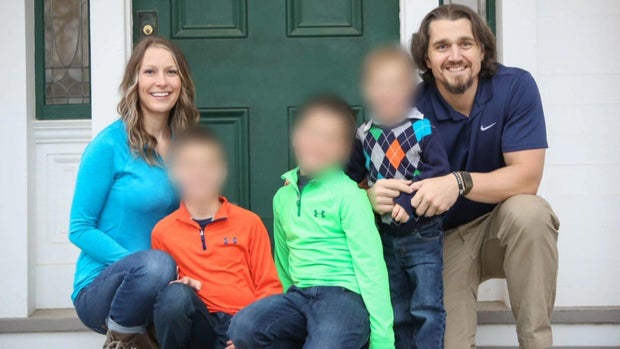
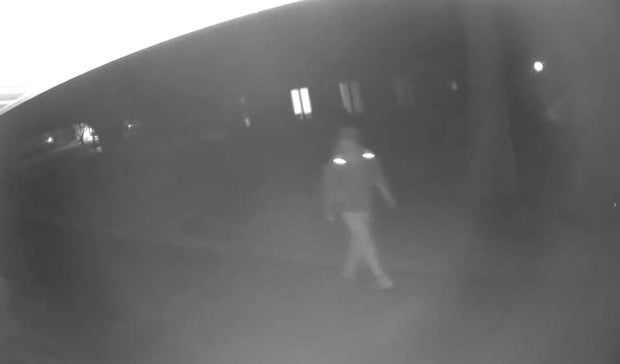
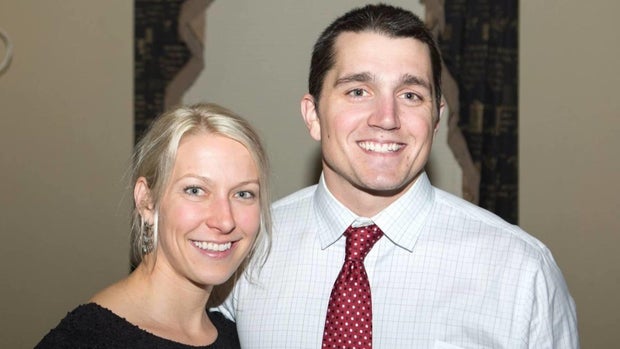

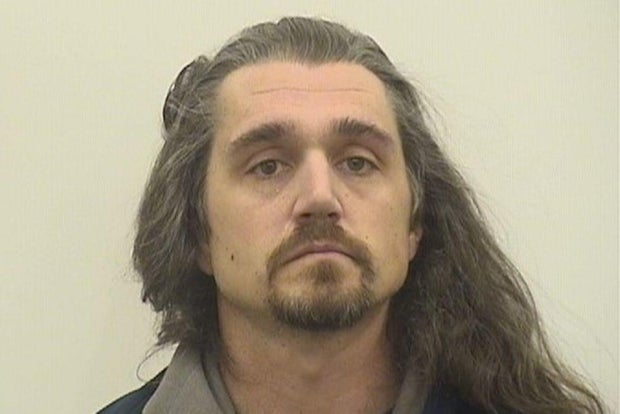
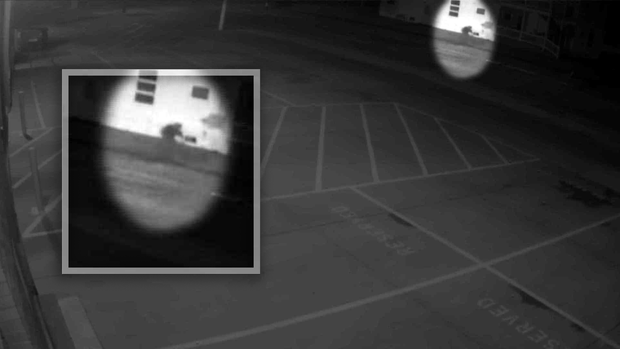
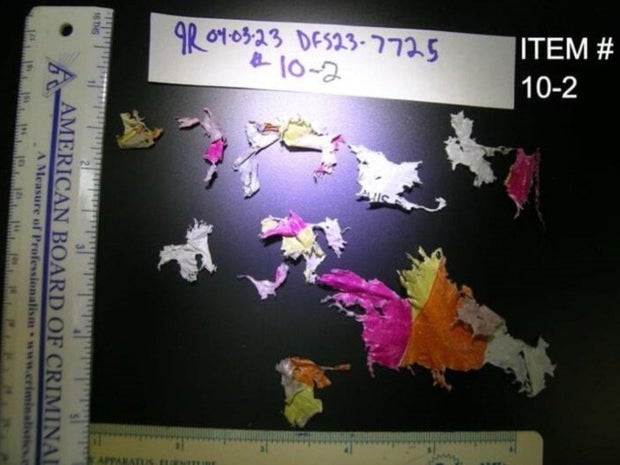
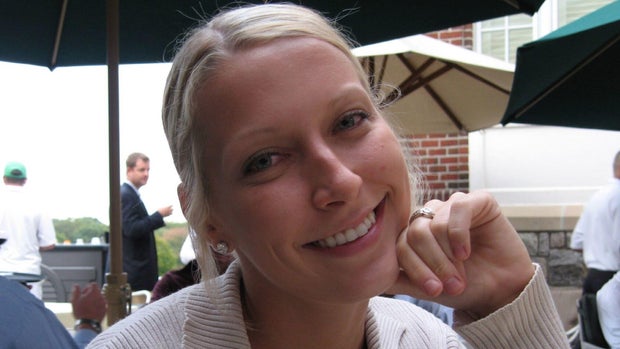
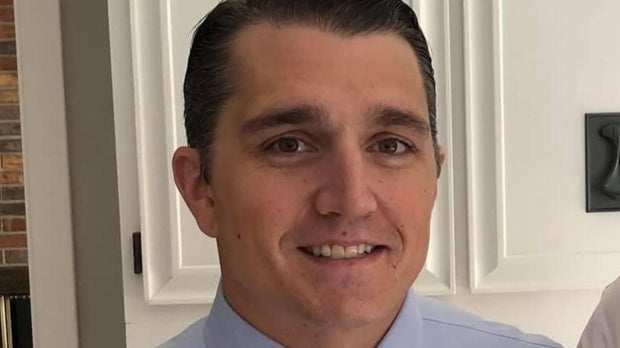
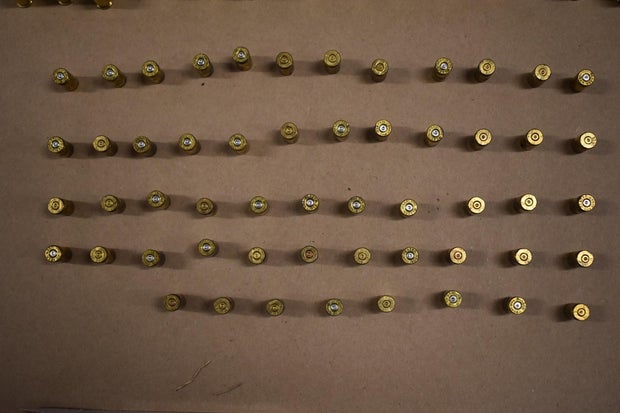
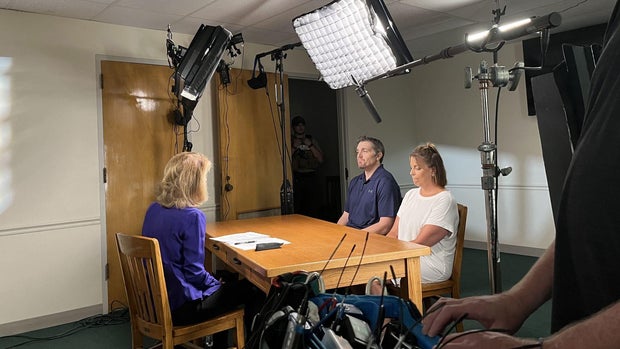
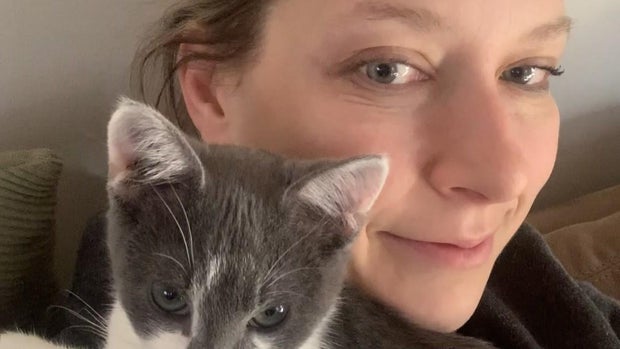

Leave a Reply